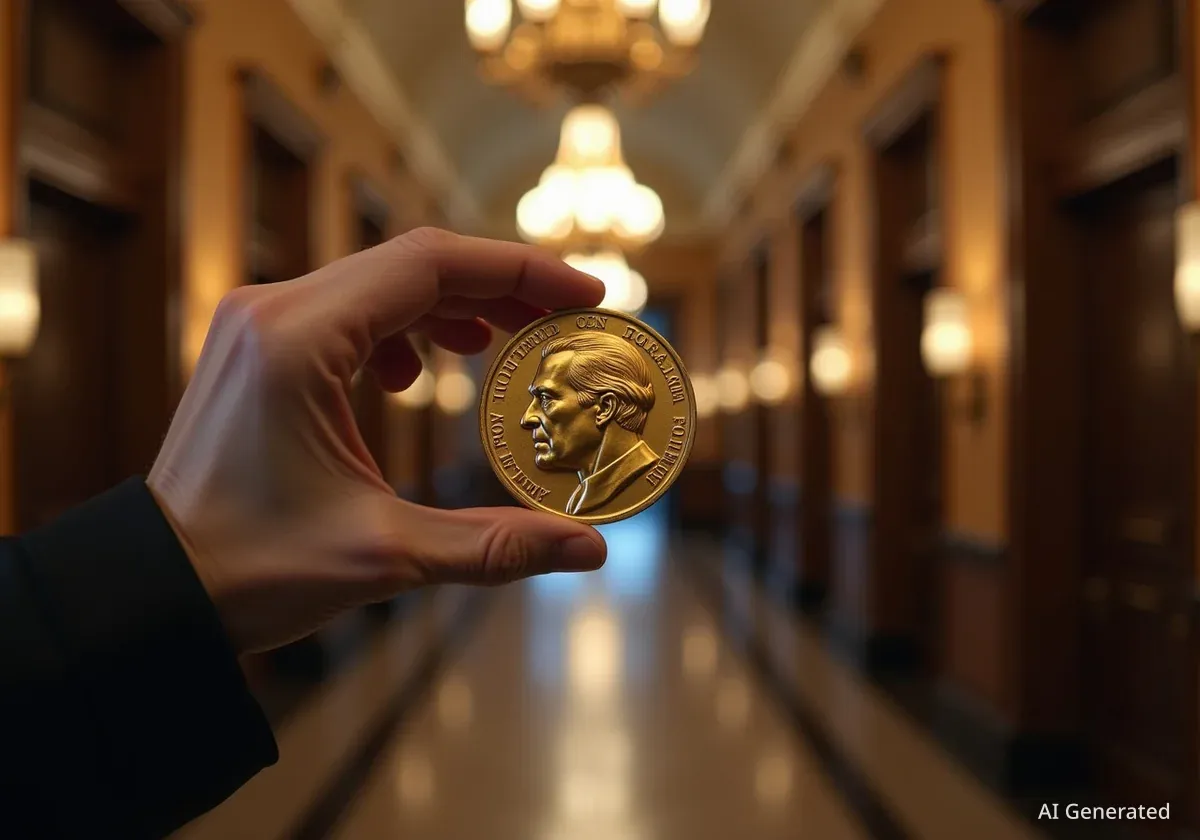Former President Donald Trump recently shared an AI-generated video on his Truth Social platform promoting "medbeds," a fictional technology from an online conspiracy theory. The video, which was removed after approximately 12 hours, appeared while his administration's past policies continue to impact real-world medical research and healthcare services, particularly in Texas.
Key Takeaways
- Donald Trump posted an AI-generated video featuring a deepfake of himself announcing a new healthcare system based on "medbeds."
- "Medbeds" are a conspiracy theory about non-existent advanced medical technology capable of curing any disease.
- The promotion of this fictional technology contrasts with significant, real-world cuts to medical research and healthcare funding that occurred during his administration.
- Texas institutions, including major cancer and medical research centers in Houston, faced over $50 million in frozen or canceled federal grants.
- Experts estimate that policy changes to Medicaid and the potential expiration of ACA tax credits could result in over 1.6 million Texans losing health insurance.
AI Video Promotes Fictional Healing Technology
Over a recent weekend, an artificially generated video was posted to Donald Trump's Truth Social account. The video featured a synthetic version of Trump announcing a revolutionary healthcare initiative centered on "medbeds."
In the video, the AI-generated voice stated, "Every American will soon receive their own medbed card." It promised guaranteed access to new hospitals equipped with this advanced technology, which would be staffed by the nation's top doctors.
The video was taken down from the platform after being live for about 12 hours, but not before drawing significant attention. The incident highlights the growing challenge of distinguishing between authentic and AI-generated content in public discourse.
Understanding the Medbed Conspiracy
The concept of "medbeds" originates from a persistent online conspiracy theory. Proponents claim that a highly advanced, secret technology exists that can instantly heal any illness, regenerate limbs, and reverse aging. The theory alleges that this technology is being withheld from the public by governments and other powerful entities. This narrative has been used by scammers to sell fraudulent products to vulnerable individuals seeking cures for serious health conditions.
Contrast with Real-World Healthcare Policies
The promotion of a fictional healthcare solution occurred against a backdrop of tangible policy decisions that have impacted the U.S. healthcare landscape. During the Trump administration, significant changes were made to federal funding for medical research and public health services, with notable consequences in Texas.
These actions represent a divergence between promises made through platforms like social media and the practical effects of implemented policies. While the AI video promised futuristic cures, existing medical institutions faced funding challenges.
Impact on Medical Research in Texas
According to reports, the National Institutes of Health (NIH) froze or canceled more than $50 million in research grants in Harris County, Texas, alone. This directly affected several prominent institutions:
- Baylor College of Medicine
- The University of Texas MD Anderson Cancer Center
- The University of Houston
In Galveston, the University of Texas Medical Branch experienced a termination of over $19 million in research grants. This included a critical $14 million grant intended for the development of drugs to prevent future pandemics.
These funding reductions have implications not only for scientific discovery but also for local economies that rely on the innovation and employment generated by these world-class medical hubs. David Ricks, chairman and CEO of Eli Lilly, noted the importance of a skilled workforce in the region, a factor directly supported by robust research institutions.
Broader Implications for Public Health Coverage
Beyond research, administrative policies have also had a direct effect on public health insurance coverage. Substantial cuts to Medicaid, the program providing healthcare for low-income families and children, have created significant financial pressure.
Health policy news organization KFF reported that Texas is projected to lose approximately $39 billion in federal funding over the next decade due to these cuts and increased administrative requirements. This reduction in support is expected to shift more of the financial burden for uncompensated care to local taxpayers and hospitals.
"Experts expect more than 1.6 million Texans will lose their health insurance as a result of all these cuts."
Additionally, a critical deadline approaches for tax credits associated with the Affordable Care Act (ACA), which are set to expire on December 31. If these credits are not extended, millions of Americans who purchase insurance through the ACA marketplace could face significantly higher premiums.
A Pattern of Grandiose Promises
The medbed video is seen by some observers as part of a larger pattern of making grand declarations that are disconnected from policy realities. Throughout his political career, Trump has made numerous high-profile promises that have not come to fruition.
Examples often cited include the claim that he would end the Russia-Ukraine war on his first day in office, that Mexico would pay for a border wall, and that new tariffs would lower costs for American families. The promotion of a sci-fi healing technology fits within this established communication style.
As political discourse increasingly incorporates AI-generated content, the incident serves as a reminder for the public to critically evaluate information, especially when it concerns vital areas like healthcare. The focus remains on the real-world consequences of policy decisions, which directly affect the health and financial stability of families across the country.





